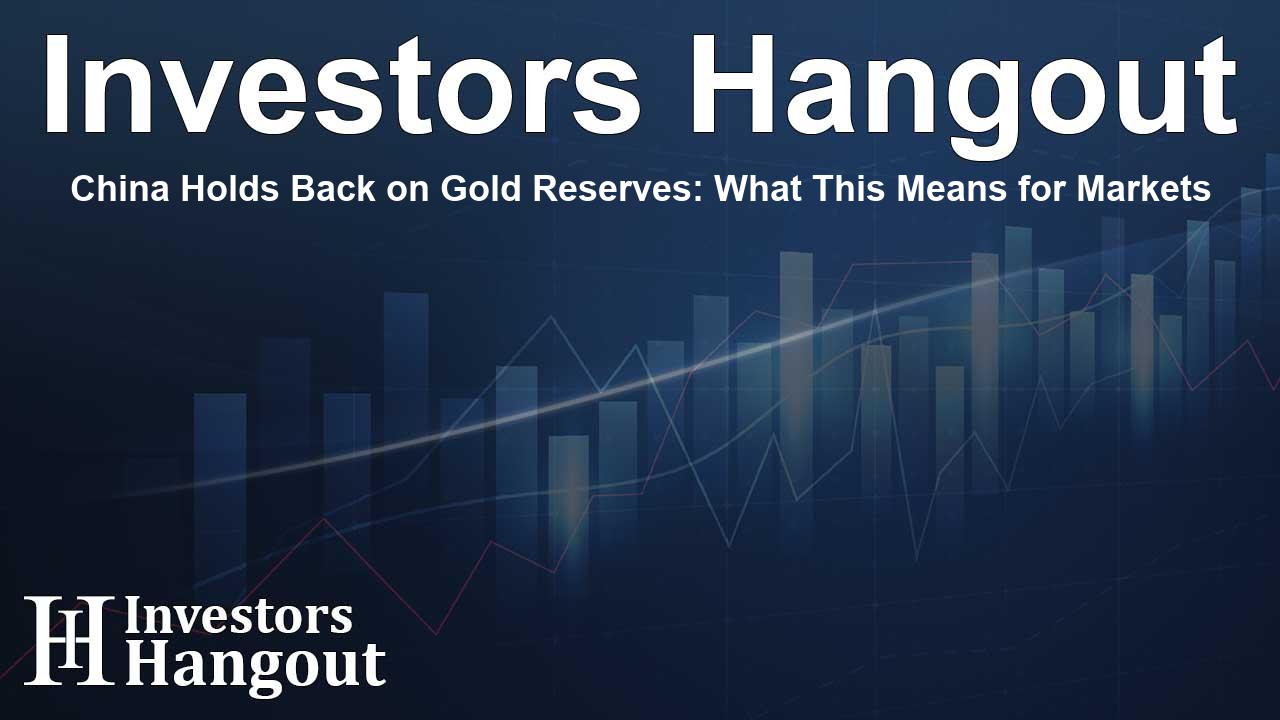China Holds Back on Gold Reserves: What This Means for Markets

China's Gold Reserve Strategy: A Temporary Hold
In a significant move, China's central bank has refrained from purchasing gold for its reserves for the fourth consecutive month. As of now, China's gold holdings remain at 72.8 million fine troy ounces, with the total value of these reserves having risen to $182.98 billion, up from $176.64 billion at the end of the previous month.
The Rise of Gold Prices Amid Global Uncertainty
This year has witnessed a notable surge in gold prices, driven primarily by expectations of imminent U.S. rate cuts and a safe-haven demand fueled by ongoing geopolitical and economic instability. As a result, central banks, including China's, are making robust purchases.
The Performance of Gold in 2023
Gold prices have skyrocketed by approximately 21% this year, maintaining levels just shy of the historic high of $2,531.60 reached recently. This unexpected rise has intrigued many investors and market analysts. Such prices suggest a strong demand for gold as an investment and safety net during uncertain economic times.
China's Positioning in Global Gold Markets
Before the recent pause in purchases, the People's Bank of China (PBOC) was the largest single buyer of gold worldwide for 18 straight months. This decision to temporarily halt purchases has notably dampened demand among Chinese investors in recent times.
Future Prospects of China's Gold Buying
Market analysts believe that the PBOC is likely to resume its purchases eventually, despite the high price levels of gold. This potential resumption does not solely stem from economic reasoning; rather, it is propelled by political motivations. Specifically, there is a growing desire to lessen dependence on the U.S. dollar as a primary reserve asset, as highlighted by Carsten Menke, an analyst with a leading financial institution.
Conclusion: Market Implications
China's current stance on gold purchases carries profound implications for global gold prices and market strategies. As it stands, the ongoing fluctuation in demand signifies an evolving landscape in international finance and investment strategies.
Frequently Asked Questions
Why is the People's Bank of China halting gold purchases?
The People's Bank of China is pausing its gold purchases mainly to assess market conditions and to respond to geopolitical factors rather than economic ones.
How have gold prices changed recently?
Gold prices have risen by about 21% this year, fueled by uncertainty in the financial markets and expectations of U.S. rate cuts.
What was China's role in the global gold market?
China was the largest single buyer of gold in 2023, influencing global demand and prices significantly up until its recent purchase pause.
Will China's gold purchasing resume?
Analysts expect that China will eventually resume buying gold as part of its strategy to increase reserves, particularly for political reasons.
What does this mean for individual investors?
For individual investors, the fluctuations in gold prices and China's actions may provide valuable insights into market trends and investment opportunities.
About The Author
Contact Logan Wright privately here. Or send an email with ATTN: Logan Wright as the subject to contact@investorshangout.com.
About Investors Hangout
Investors Hangout is a leading online stock forum for financial discussion and learning, offering a wide range of free tools and resources. It draws in traders of all levels, who exchange market knowledge, investigate trading tactics, and keep an eye on industry developments in real time. Featuring financial articles, stock message boards, quotes, charts, company profiles, and live news updates. Through cooperative learning and a wealth of informational resources, it helps users from novices creating their first portfolios to experts honing their techniques. Join Investors Hangout today: https://investorshangout.com/
The content of this article is based on factual, publicly available information and does not represent legal, financial, or investment advice. Investors Hangout does not offer financial advice, and the author is not a licensed financial advisor. Consult a qualified advisor before making any financial or investment decisions based on this article. This article should not be considered advice to purchase, sell, or hold any securities or other investments. If any of the material provided here is inaccurate, please contact us for corrections.
